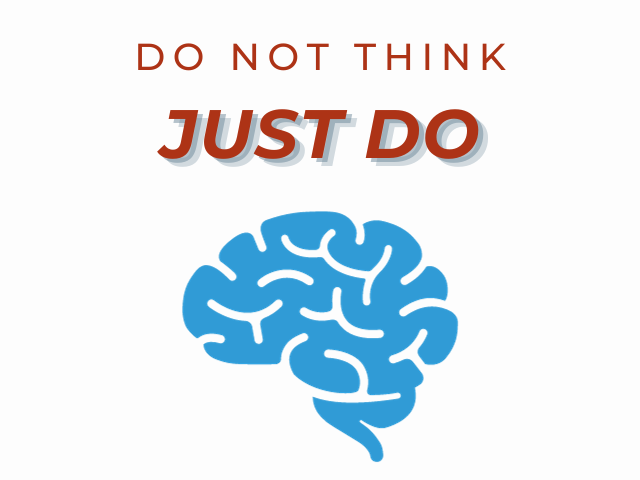How to motivate yourself in doing things you don't want to do
We all have tasks and responsibilities that we simply don't enjoy doing. In this blog post, we'll explore the different types of motivation factors and several techniques and tips to help you motivate yourself in doing things you don't want to do.

Techniques to Stay Motivated
Put down the Phone
Because of our constant attachment of our phones, we rarely get anything done. We can't be our best productive self.
This includes the use of Televisions, computers, and any other devices that is made for entertainment sake.
There is a time and place for relaxing and do recreational activities, but it shouldn’t be part of a majority of your daily routine.
Unless the devices used are for educational purposes, it is a waste of time.
The 5 seconds rule
This is an old technique that I have used since my pre-teens, I don’t know of its origins, but it is a simple concept to understand.
How does the 5 seconds rule work?
Whenever you feel like doing an activity that you don’t want to do, count down from 1 to 5 or 5 to 1 (your choice). Treat it as a count down for a race and you’re the runner or a countdown for a spaceship and you’re the spaceship.
Once the countdown is over you do the activity you assigned yourself to do, it is important that you don’t think too much because your conscious mind might betray you.
IF you are still starting this technique out, then I suggest you do this for small activities that you dislike doing like tidying up your room or going for a walk instead of jogging.
Make your goals simpler
Sometimes we can overestimate our ability to get a job done, which will lead us to being overwhelmed by ambitious and convoluted goals.
When returning back to an old activity or starting a new activity, it is wise to make your goal small as to not overwhelm yourself.
For example:
IF your goal is to run every morning for at least 30 minutes, then start it off by walking for 15 minutes and running for 15 minutes.
If that feels a lot of work then make it even simpler, instead of running for 30 minutes, walk for 30 minutes.
If even that feels a lot of work, then simply make your goal from running for 30 minutes every morning into simply going outside for at least 30 minutes.
Control your environment
The best thing to do against procrastination is to prevent yourself from procastinating in the first place. And one of the, if not the best way to do that is to control your environment.
One of the most effective tactics on combating procastination, if not the most effective, is to control your environment.
more on that in this blog post.

Types of Motivation Factors
The Power of Fear

Fear has the ability to paralyze us and hold us back from taking risks or pursuing our dreams, but by embracing fear and reframing our relationship with it, we can harness its power to fuel personal growth, resilience, and creativity.
Fear, like any other emotion can be used as a driving force to propel yourself towards your goals.
Types of fear that can be used as motivation:
- The Fear of disappointing others and oneself;
- The Fear of Regret;
- The Fear of Mediocrity;
- The Fear of being undervalued; And
- The Fear of missing out.
The Power of Honor
The desire to bring honor to yourself, your family, peers, or any other group or individual is typically a motivation factor for the virtuous or an individual who desires to be virtuous.
This motivation factor is commonly seen when you—or any other individual is upholding their own or group’s principles.
The Power of Glory
Glory hunting is a valid motivation factor. The desire to gain recognition, creating a legacy, or simply the desire to experience thrill and excitement is enough to incentivize a man to act.
There is not much else to say.
The Power of Hate and Anger
Hate and anger are one of the most intense emotions anybody can ever experience, it is however not everlasting.
Not only does anger and hatred blinds the mind and darkens the soul, it also is not a reliable driving force; anger, if not rekindled, will dwindle.
Drawbacks for using Hate and Anger as a motivation factor:
- Destructive Behaviors;
- Losing sight of original goals;
- Chronic stress; And
- Other health problems.
Related Blog posts:


The Power of Giving up your soul
Giving up your entire being into one activity, one action, or one purpose grants you the ability to fully utilize everything that your body is capable of giving out.
It forces you into going to your flow state. Like a machine, your entire being is tasked to only one purpose, and that is to accomplish the assigned directive.
IT is a very powerful and pleasant feeling, I suggest you try giving yourself up into an activity or passion of yours, it will do wonders for your mental state and self-confidence.
The Philosophy That You Should Consider Embodying
Do Not Think, Just Do
The "Do not think, just do" philosophy is a mindset or approach that emphasizes immediate and decisive action without excessive contemplation or overanalysis.
It encourages individuals to act before they get a chance to think, making no room for postponing tasks or being overwhelmed.

Copyright ©2023, ©2024 by Marshall Vulta
Last revised: March 7, 2024




Comments ()